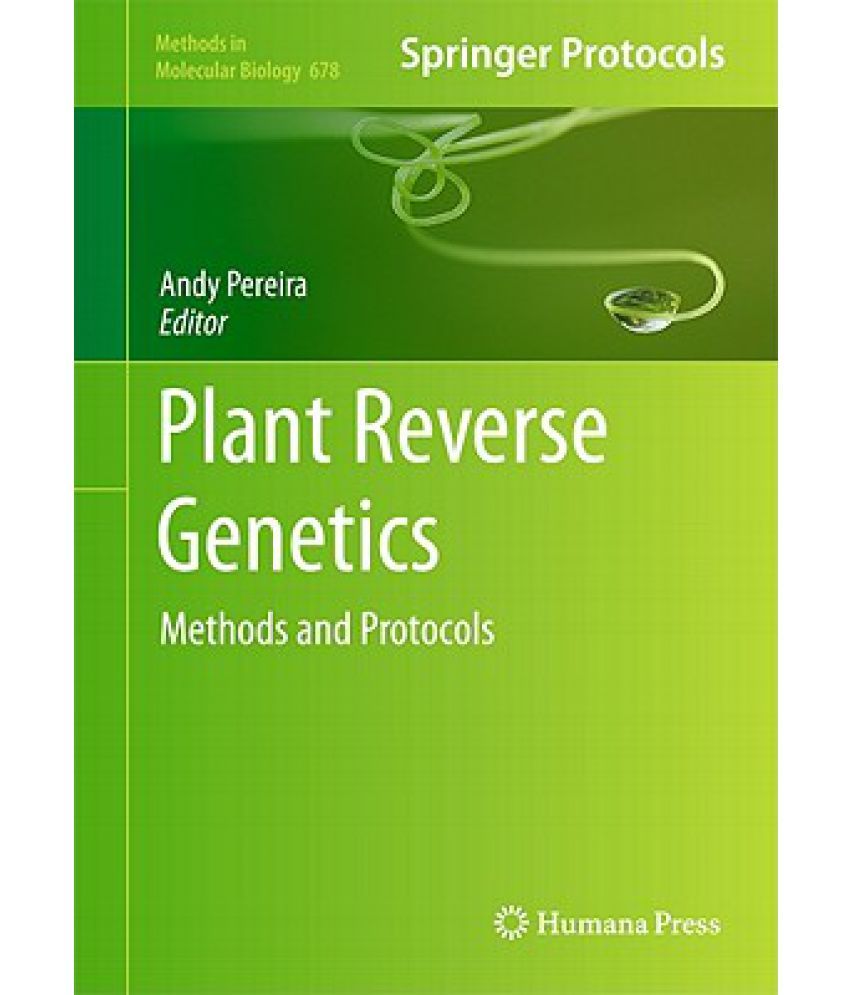Something went wrong. Please refresh the page and try again.
Something went wrong. Please refresh the page and try again.
Notifications can be turned off anytime from settings.
Item(s) Added To cart
Qty.
Something went wrong. Please refresh the page and try again.
Something went wrong. Please refresh the page and try again.
Exchange offer not applicable. New product price is lower than exchange product price
Please check the updated No Cost EMI details on the payment page
Exchange offer is not applicable with this product
Exchange Offer cannot be clubbed with Bajaj Finserv for this product
Product price & seller has been updated as per Bajaj Finserv EMI option
Please apply exchange offer again
Your item has been added to Shortlist.
View AllYour Item has been added to Shopping List
View AllSorry! Plant Reverse Genetics is sold out.


You will be notified when this product will be in stock
Brief Description
With contributions from leading researchers, this is an ideal guide to cutting-edge methods for isolating gene functions in plants. The book includes both high-throughput and genome-wide techniques, using Arabidopsis and rice, among other plants, as exemplars.
Learn More about the Book
After the generation of genome sequence data from a wide variety of plants, databases are filled with sequence information of genes with no known biological function, and while bioinformatics tools can help analyze genome sequences and predict gene structures, experimental approaches to discover gene functions need to be widely implemented. In Plant Reverse Genetics: Methods and Protocols, leading researchers in the field describe cutting-edge methods, both high-throughput and genome-wide, involving the models Arabidopsis and rice as well as several other plants to provide comparative functional genomics information. With chapters on the analysis of high-throughput genome sequence data, the identification of non-coding RNA from sequence information, the comprehensive analysis of gene expression by microarrays, and metabolomic analysis, the thorough methods of the book are fully supported by scripts to aid their computational use. Written in the highly successful Methods in Molecular Biology series format, the chapters contain introductions to their respective topics, lists of the necessary materials, step-by-step, readily reproducible laboratory protocols, and notes on troubleshooting and avoiding known pitfalls. Authoritative and essential, Plant Reverse Genetics: Methods and Protocols is an ideal guide for researchers seeking an understanding of how the complex web of plant genes work together in a systems biology view.
On the Back Cover
After the generation of genome sequence data from a wide variety of plants, databases are filled with sequence information of genes with no known biological function, and while bioinformatics tools can help analyze genome sequences and predict gene structures, experimental approaches to discover gene functions need to be widely implemented. In Plant Reverse Genetics: Methods and Protocols, leading researchers in the field describe cutting-edge methods, both high-throughput and genome-wide, involving the models Arabidopsis and rice as well as several other plants to provide comparative functional genomics information. With chapters on the analysis of high-throughput genome sequence data, the identification of non-coding RNA from sequence information, the comprehensive analysis of gene expression by microarrays, and metabolomic analysis, the thorough methods of the book are fully supported by scripts to aid their computational use. Written in the highly successful Methods in Molecular Biology series format, the chapters contain introductions to their respective topics, lists of the necessary materials, step-by-step, readily reproducible laboratory protocols, and notes on troubleshooting and avoiding known pitfalls. Authoritative and essential, Plant Reverse Genetics: Methods and Protocols is an ideal guide for researchers seeking an understanding of how the complex web of plant genes work together in a systems biology view."
Review Quotes
1. From the reviews: This book includes a compendium of methods and protocols derived from functional genomics that have been developed during the last decade . The book is organized in chapters written by leading researchers from different groups . Large scale phenotyping is also described with protocols suitable for application in different lab conditions. Gramene database is presented as an example of integrated information derived from different species, providing details of the information gathered in it as well as available tools for sequence comparisons. (Ruth Heinz and Norma Paniego, Boletin de Bibleoteca del IMYZA-INTA, Issue 26, June, 2011)
2.
From the reviews: This book includes a compendium of methods and protocols derived from functional genomics that have been developed during the last decade . The book is organized in chapters written by leading researchers from different groups . Large scale phenotyping is also described with protocols suitable for application in different lab conditions. Gramene database is presented as an example of integrated information derived from different species, providing details of the information gathered in it as well as available tools for sequence comparisons. (Ruth Heinz and Norma Paniego, Boletin de Bibleoteca del IMYZA-INTA, Issue 26, June, 2011)"
The images represent actual product though color of the image and product may slightly differ.
Register now to get updates on promotions and
coupons. Or Download App